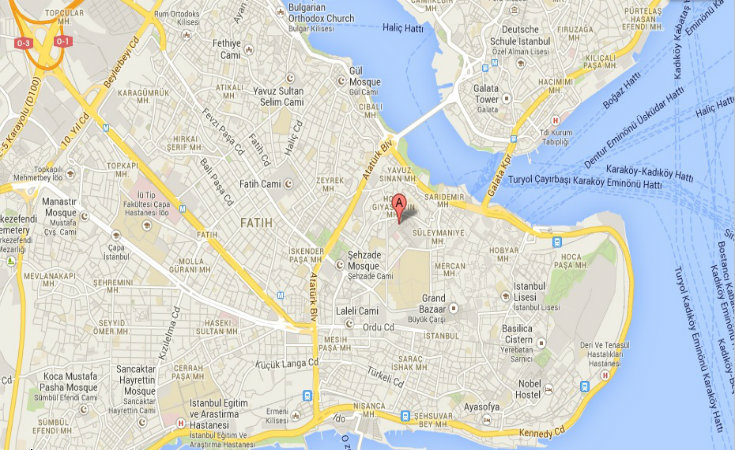türkçe links to original Turkish article
(HaberTürk Newspaper, 31 May 2018)
 Police artist's rendering of the first head-butt. That's
Mehmet T. on the right. (Police included sound effect
word 'WHUDD!' due to lack of audio from the incident.)
Police artist's rendering of the first head-butt. That's
Mehmet T. on the right. (Police included sound effect
word 'WHUDD!' due to lack of audio from the incident.)
A wife-beating incident in the middle of the street ended quite
differently this time around. In Kâğıthane, Istanbul, Mehmet T.
and his wife Nevin T., who are divorcing, were returning from
the courthouse when an argument erupted between them.
Mehmet T. attacked the young woman, kicking her to the ground
and beating her with a roll of papers in his hand.
At this point, two street-cleaners intervened and one of them
head-butted Mehmet T. in order to save the woman from further
harm. Mehmet T. collapsed from the blow and a crowd gathered,
with some calling police and others trying to prevent Mehmet T.
from fleeing.
As Mehmet T. got up, the street-cleaner head-butted him again (!),
sending him back to the ground. Police arrived to take Mehmet T.
into custody and Nevin T., who had a split lip from the beating,
went to the police station to give a statement. At the police station,
despite video evidence, Mehmet T. declared that "I didn't hit my
wife. While we were talking, all of sudden she began hitting
herself (!). Some people started kicking me in the back. It was
very crowded. I think my wife set me up. (!)"
 Mehmet T. on the attack, left, and holding ice pack
for his head, right.
Mehmet T. on the attack, left, and holding ice pack
for his head, right.
After giving his statement, Mehmet T. was released. Witness
Mehmet Kaya related that "some guy was beating a woman,
who was screaming 'Police! Help me!' A passer-by ran a the
attacker and head-butted him. Then, others held the attacker."
Ayşe Atasoy, another witness, said that "we heard screaming
and went outside. The woman was lying on the ground,
screaming and trying to protect herself. Then, citizens
intervened."
HaberTürk reached out to Nevin T., who said "my husband
is responsible for this mess. I don't know why he did it. Today
we started the divorce process. I'm staying with my family now."
As for the heroic, head-butting street-cleaner, he related that
he used the head-butt blow technique because he thought the
attacker might have a knife in his hand.




